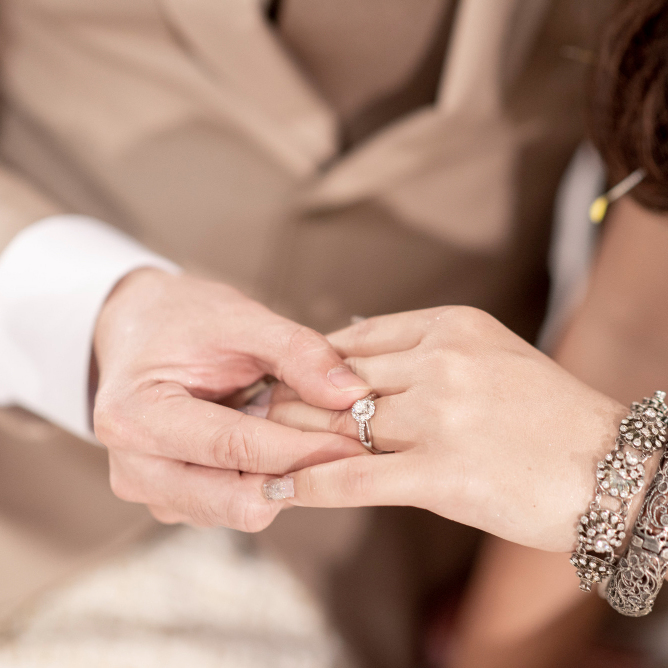Superstitions have been a part of human culture for centuries, passed down from generation to generation. They are beliefs or practices that are considered irrational or supernatural, yet continue to hold significance in our lives. One such superstition is the act of knocking on wood, which is believed to bring good luck and ward off bad luck. But where did this tradition originate, and why do people still adhere to it today? In this article, we will explore the meaning behind knocking on wood and delve into seven other intriguing superstitions from around the world.
The Origins of Knocking on Wood
Knocking on wood is a superstition that’s been around for centuries.
While the origins of this superstition may be unclear, many believe it comes from the 19th-century European paganism, which claimed that trees had spirits and would provide good fortune if you knocked on them.
The act of knocking on wood is meant to acknowledge the good fortune you’ve received and ask for protection from bad luck. However, just because we don’t know where knocking on wood comes from doesn’t make it any less significant.
The Superstition of the Number 13
Is it really a superstition, or is there something to the number 13? I know what you’re thinking, “What? The number 13? No way! Really? Come on.” Yes, really. People all over have had an aversion or an attachment to the number 13 for millennia, even before the Middle Ages. And a lot of us don’t even know why.
People call their fear of the number 13 triskaidekaphobia, which came from Greek where they put together three words: triskaideka, which means 13; phobia, which means fear; and phobos, another word for fear. And there are a few theories as to how this superstition started – from the bible to math.
In the Bible, there is no mention of the number thirteen as being purely evil. But in some religious texts, like the Bible, you will find a reference to thirteen and 13 – at dinner parties. As we all know, Jesus Christ had 12 disciples (or apostles), and there were 13 people at the Last Supper. Some say that it was the 13th guest who brought about Judas’ betrayal of Jesus. This has led to one of the reasons why people avoid the number 13.
Another reason is simpler: math. Math is hard. It’s definitely not my forté. But even I could understand that people have avoided the number 13 in their everyday lives because of math. Long ago (like the Babylonians long ago), people studied numbers more than we do today to figure out their cleaving order. The ancient mathematicians noted that 12 was a “complete” number – 12 months in a year, 12 hours on a clock face, etc. While 13 was an odd and “imperfect” number. And this – and other research into numbers – may have led to our avoidance of 13.
And now to end with a fun fact: some hotels don’t have a 13th floor – but do you know why? There isn’t an actual belief stating that skipping the number 13 will bring good luck. It’s more of a way to avoid making future guests uneasy.
Breaking a Mirror: 7 Years of Bad Luck
Ever dropped your phone and had to spend $100 on a new screen? Now, imagine shattering it into a million pieces. That’s what happens to your luck when you break a mirror. Many believe that a broken mirror is a sign of doom and gloom which results in 7 years of bad luck. The myth comes from the Romans who put a spin on the mirror-seeing myth and excluded the look-alike part. Members of royalty and the elite believed that shattered mirrors were an act of witchcraft and would mean the death of a beloved pet, child, or family member. The 7-year part is newer than you think. It wasn’t until the 18th century when people believed that it took 7 years to fully heal from bad luck.
The superstition isn’t all doom and gloom—just because you break a mirror doesn’t mean you’re going to have 7 years of bad luck. To avoid breaking a mirror and to learn how to break the spell, you can either gather all the broken pieces of the mirror and bury them by moonlight (in one piece) or grind the shards into dust.
The Evil Eye: Protecting Against Envy
Before discussing the topic, I want to quickly remind everyone to respect all cultures, as each culture has different beliefs and traditions. In this post, we will discuss a few superstitions from different cultures, and you should always respect your audience. The information provided is for awareness and educational purposes only.
While the evil eye superstition originates in the Mediterranean, it has become an international superstition. There are varying beliefs when it comes to the evil eye, but in general, it’s viewed as a curse that brings bad luck to a person. People believe the curse is brought on by a malicious glare or look from someone jealous of you.
For example, a stranger walks by you and compliments your new dress or camera – before you know it, your dress rips or your camera falls and breaks. This could be a sign that someone gave you the evil eye.
While the evil eye might be taken lightly in North America, in other cultures, such as Turkey, Greece, and Iran, people take it very seriously. The belief in the evil eye is so strong that people wear amulets and charms to protect them from being cursed by the evil eye’s malicious glare.
The meaning behind the evil eye
The most common symbol used to ward off the evil eye is the nazar amulet/charm/pendant. The nazar (also known as blue eye) is a round, blue glass bead with a white circle in the middle. In many traditions, this bead is worn as a necklace or bracelet.
The color blue represents good karma and positive energy, which harnesses negative energy from people who look upon you with envy or jealousy. However, the color blue is not the only representation of good karma; it also contains elements of yellow and white.
Some cultures use other symbols to represent the evil eye:
- In Mexico and Central America, they use an “Ojo de Venado (deer eye)” made from woven palm leaves.
- In India and Pakistan, they apply black paint that is mixed with ground-up lemons on their body because it’s believed to ward off bad luck.
- Hag stones (stones with natural holes) are common in Europe as they offer protection against witchcraft and evil.
How the evil eye affects you
Possible symptoms of having been given the evil eye may include:
- A headache or migraine
- A dry mouth
- A fever
- An upset stomach
- Irritability
- Fear
- Fatigue
- Nausea
If you suspect you’ve been given the evil eye, you should contact a spiritual healer to remove it.
Protecting yourself from the evil eye
To prevent being given the evil eye, many people put up amulets in their home or wear them as a bracelet or necklace. The nazar is worn as an amulet (bracelet or necklace) but there are other ways to protect yourself from receiving the evil eye:
- Certain jewelry is worn for protection: Jewelry with charms, medallions, and beads in certain colors such as red and black are often popular in Muslim countries.
- Certain religious items like crosses are also said to protect people from receiving the evil eye.
- Eating garlic and wearing it in a pouch around your neck is said to protect people from receiving the evil eye.
- In Asia and southeastern Europe, some people believe in the power of burning Juniper branches to protect themselves from the evil eye.
In summary
The belief in the evil eye varies depending on different traditions. However, protection from this curse can be used worldwide.
While we may not believe in these superstitions or traditions, we need to respect them. These traditions have been around for generations and are still used today by many individuals.
Crossing Fingers for Good Luck
You’ve probably seen someone cross their fingers before. It’s when they take their index finger and place it over their middle finger, forming an X.
But how did it become a symbol for good luck? The history of crossing your fingers is a bit blurry, but it’s widely believed that it can be traced back to the early days of Christianity.
The sign of the cross was used by religious people to ward off evil. But as time went on, superstitious folks began crossing their fingers hoping for good luck.
Today, the superstition that comes with crossing your fingers is used in common phrases like “cross your fingers,” “fingers crossed,” or “keep your fingers crossed.”
So, the next time you’re hoping for good news, cross your fingers!
Avoiding Black Cats: A Worldwide Superstition
Almost everyone I know avoids black cats. I know I do. Black cats have been associated with superstitions for centuries. During the middle ages, folks thought they were witches who could shapeshift into the cat to avoid being noticed. While the superstition surrounding black cats differs, depending on the country and culture, most people believe coming across a black cat means bad luck and you should walk away.
You shouldn’t look at a black cat while on a boat, and sailors used to believe bringing a black cat on board could bring bad weather. The it’s bad luck if a black cat crosses your path belief originated in England and is pretty widespread.
Black cats are also linked to the Irish in Celtic regions. They believed black cats could heal ailments and were a symbol of good luck.
There’s a Japanese superstition about a black cat ghost called kuro-neko. It’s said that if you come across a black cat in the night, it might be a ghost trying to scare you or, worst-case scenario, an omen of your future death. But don’t worry – black cats are also considered good luck in Japan during nighttime hours.
Avoiding the Cat, Stepping on Cracks
The children’s rhyme “step on a crack, break your mother’s back” is quite popular, and I think I used to avoid stepping on cracks because of it. It’s been around for centuries. Traditionally, this was first told as “step on a line, break your father’s spine” and, later on, included the word “crack.”
The children’s game Hopscotch is also believed to originate from this superstition. Parents use it as a way to teach their children balance and coordination skills.
Why Do We Knock on Wood?
Knocking on wood is one of the oldest rituals of good luck, which dates back to ancient pagan times. The ancient Jews knocked on wood as a sign of faith whenever they uttered God’s name to bring themselves good fortune.
Wood has been sacred for centuries. Trees have been associated with folklore throughout human history. The Celts believed trees were divine spirits, and knocking on trees was a way to communicate with them and ask for favors.
In 19th-century European folklore, it was stated that if you knocked on wood three times after boasting about your luck or good fortune, you would ward off any disastrous misfortunes.
What Happens if You Break a Mirror?
This phrase I have heard often growing up from my mama. “Don’t break glass on concrete or else you will break your mother’s back!” The superstition of breaking mirrors dates back thousands of years into ancient history, as early as the Greek and Roman times.
They believed that a mirror can capture your likeness, so breaking one can bring seven years of bad luck after releasing your captured reflection and harming your soul. There are ways to counteract breaking this particular superstition: throwing salt over your left shoulder (into the eyes of the devil), burying the mirror under the moonlight, or placing the broken mirror in a stream of running water – but it must be flowing from east to west and not west to east.
Opening an Umbrella Indoors
This superstition is so widely known that many people are afraid to do because of the bad luck it brings. Most people believe if you open an umbrella indoors, it brings bad luck into your house. Some people believe it comes from an ancient Egyptian ritual where an umbrella was used to protect from sun and rain. If you brought an umbrella indoors and opened it, it would show disrespect to the sun god.
Another belief is that people in ancient times didn’t want to open an umbrella indoors because it would spoil their good luck charm.
Walking Under a Ladder
You’re not supposed to walk under a ladder, but have you ever wondered why? Some people believe walking under a ladder is bad luck because it resembles the gallows from medieval times. In medieval times, people were hanged from a ladder that leaned against the building or structure! If you walked under the ladder, you’d be doubly cursed from your disrespect to God and embrace death too soon.
Saying “God Bless You” When Someone Sneezes
This superstition may not be as creepy as avoiding walking under ladders or opening umbrellas indoors, but it does have its roots in ancient times! Historians believe saying “God bless you” when someone sneezes is to protect them from their soul escaping their body and inviting the devil into their body.
Avoiding Number 13
While some people may view the number 13 (also known as triskaidekaphobia) as bad luck, others see it as lucky! For starters, there are 13 full moons in a year. The Celts also considered 13 a lucky number because there were 13 knots in the Celtic love symbol.
The ancient Mayans also considered 13 a lucky number – their calendar was based on 13-day periods! And we can’t talk about 13 without mentioning Friday the 13th – it is said that Jesus Christ was crucified on the 13th day of Nisan (the Jewish month), which was also Friday.
Spilling Salt: A Recipe for Bad Luck
As an SEO writer, you’ll be able to provide your clients with a more personalized approach to their content. You can experiment with using different sentence structures or writing in a more casual or professional tone, depending on the type of content you’re writing.
Spilling salt is one of the oldest superstitions (because it dates back to ancient times) and forms the basis of the phrase “don’t spill the salt.” The idea is that spilling salt is an omen of bad luck, but you can counteract it by throwing a pinch over your left shoulder. This act is supposed to blind the devil and prevent him from cursing you with bad luck.
Walking Under Ladders: Tempting Fate
One of the most popular superstitions is walking under a ladder, but why does it bring bad luck?
Ladders are a symbol of transformation, as well as freedom. The 3 sides of a ladder are said to represent the Holy Trinity, and should not be passed through lightly. But the superstitious avoid walking under ladders because it is a bad omen, tempting fate and causing disruption in their lives.
Superstitions in this form are common in ancient Egypt and Greece, where they believe anything in the gods’ eyes was sacred and not to be disturbed.
Solutions to avoid bad luck: Wear open-toed sandals or cross your fingers until you leave the ladder’s shadow. Sounds easy enough, doesn’t it?
Superstitions may be rooted in ancient beliefs and folklore, but they continue to have a strong influence on our modern lives. Whether it’s knocking on wood for good luck or avoiding walking under ladders, these superstitions give us a sense of control and comfort in an uncertain world. While some may dismiss them as mere old wives’ tales, many others still find solace in following these age-old traditions. So the next time you find yourself in a particularly superstitious situation, don’t hesitate to knock on wood and keep bad luck at bay.












